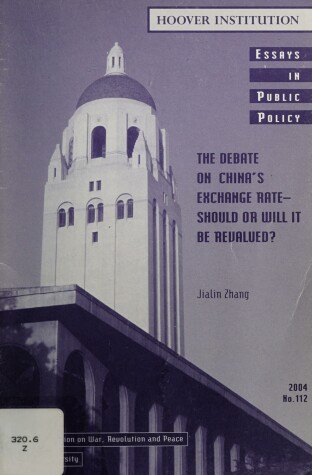China has been under heavy international pressure to abandon its currency's de facto peg to the U.S. dollar, since the United States alleged that the undervalued Chinese currency has widened the U.S. trade deficit with China and has cost U.S. manufacturing jobs over the past few years. U.S. policymakers and certain buisness sectors have urged China to revalue its currency. But the Chinese authorities argue that the competitiveness of Chinese goods comes from low labor costs rather than from the exchange rate. Meanwhile, most U.S. and Chinese economists agree that at this moment a sudden rise in the yuan's value would do more harm than good for China, the United States, and the world economy. This is not to say that China does not need to review the yuan's valuation and its exchange rate regime. Apart from external pressure, the yuan experiences and endogenous pressure to appreciate, stemming from the huge inflow of foreign assets--current-account surplus and foreign direct investment (FDI). China's foreign reserves continue to mount and its money supply has skyrocketed. Without a revaluation, these increases may lead to overheating of the economy and may fuel inflation. This is the dilemma Chinese authorities face.
It is difficult to determine, however, whether a currency is undervalued or overvalued in a nonmarket economy. The capital account is under strict control in China, and the real foreign exchange market is yet to be established. The yuan's echange rate, which is actually dictated by the government, cannot be regarded as the market equilibrium rate, nor can it serve as a true mirror of the country's real supply and demand for foreign exchange. It is sensible to change the foreign exchange regime itself rather than to change its value. In light of China's fragile financial system both American and Chinese expert urge China's policymakers to accelerate the reform and opening up of the financial sector, allowing more foreign participation. Before hectoring China to lift its capital control and adopt a free-floated exchange rate regime, it is better for developed countries to help China fix its state-owned enterprises, especially the banking sector, established a real foreign exchange market, and create a true market economy. These reforms will provide tangible economic benefits for China and in turn for the United States and global economy.
- ISBN13 9780817945626
- Publish Date 30 September 2004
- Publish Status Transferred
- Publish Country US
- Imprint Hoover Institution Press,U.S.
- Format Paperback
- Pages 28
- Language English
